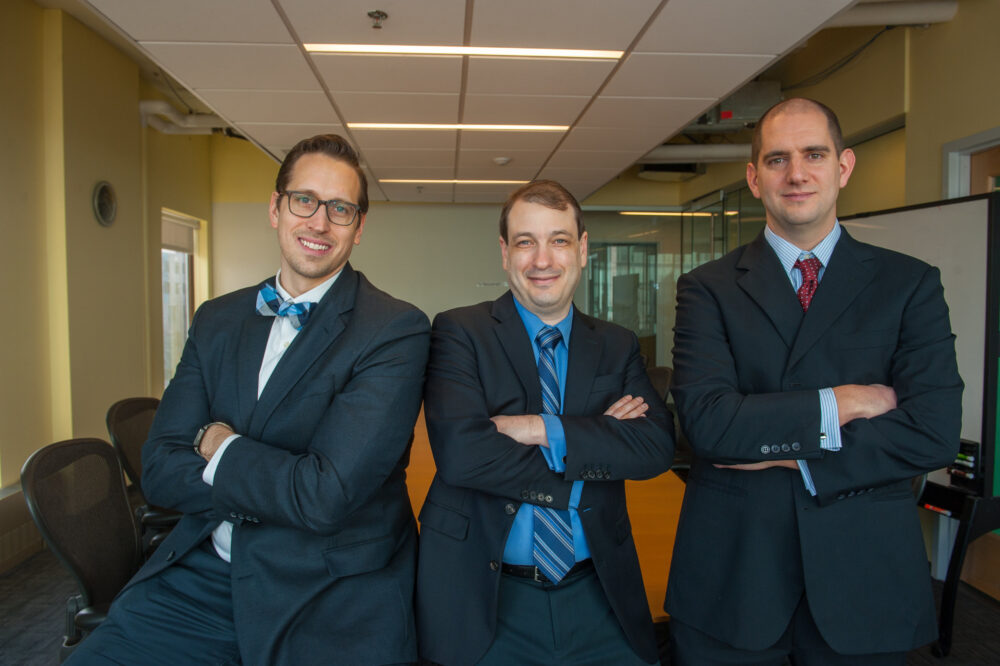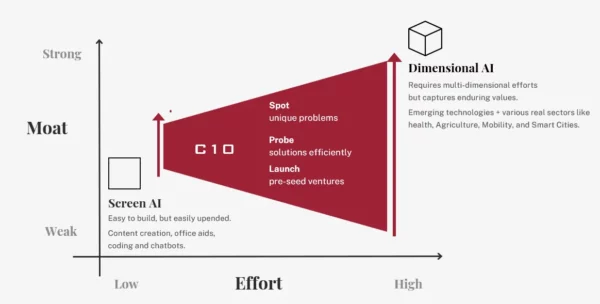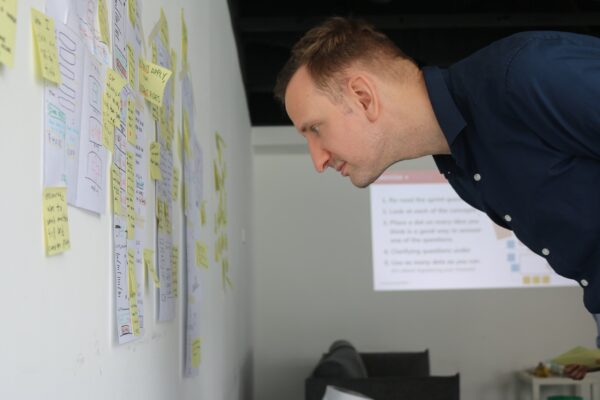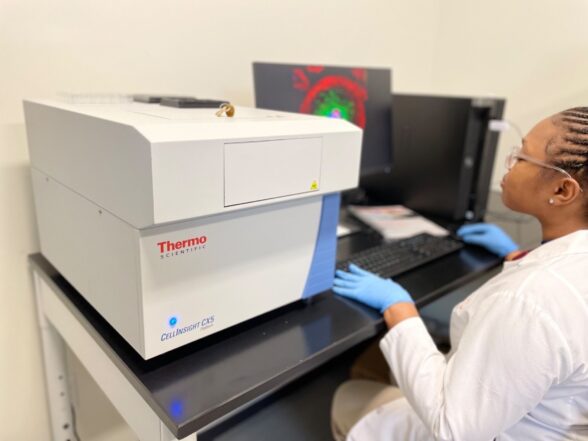If you’ve ever gone to the doctor with a health concern, only to feel mysteriously better once you’re there and instructed to come back if symptoms persist, you might recall thinking that a short appointment doesn’t necessarily result in an accurate representation of your overall health.
The limited information gathered about patients in clinical settings poses problems both for those who receive and administer treatment. Think about it: Your blood pressure this morning could be different from your blood pressure this evening or tomorrow. How you answer questions could depend on who you’re talking to, how comfortable you feel.
Clinicians and researchers largely observe patients through snapshots, rather than the big picture. Zeb Kimmel, M.D., founder and CEO of Cambridge, MA-based startup and CIC alum Atlas5D, aims to change that.
In search of a way to accurately observe patients with mobility-related diseases over time, his company created the Echo5D, a device that passively compiles information on a person’s physical function and movement in the home — without a wearable component, without invasion of privacy.
“We wanted to maintain maximum privacy and still get useful data from people’s homes,” says Kimmel.
The most useful data, of course, is accurate, comprehensive data, best gathered when adherence is made simple. Designed to operate autonomously, the Echo5D doesn’t require interaction or recharging. Patients can go about their days normally while the device scans the room three-dimensionally using infrared light. Objects bounce back light that the device uses to register shape and distance.
The Echo5D identifies specific individuals once they’ve “introduced” themselves to the device, which entails reading and memorizing a person’s “anatomical landmarks,” explains Kimmel. (In other words, it won’t know who you are until you prompt it to scan you.) From there, the device records patients’ movements, such as walking, standing up, and sitting down; calculates physical biomarkers for these shifts in posture; and collects a variety of statistics that can be used to view trends and monitor changes over time.
Kimmel says it was important that Atlas5D create a product that patients felt comfortable bringing into their personal spaces, so they designed with privacy in mind from the start. An important aspect of this was avoiding any sort of photo capture or transfer. Working with older populations, Kimmel recognized that people were understandably sensitive to photos or videos being taken of them. “They want to feel like they’re in control of their life,” he says. Positive feedback from beta testing gave the startup confidence in their method of data collection.
Ultimately, this information is meant to give clinicians deeper understandings of chronic disease patients’ conditions, allowing them to measure disease progression and better tailor treatment.
Beyond individual monitoring and treatment customization, Kimmel also sees research potential in the Echo5D. He gives the example of trials for therapies to treat Duchenne muscular dystrophy (DMD), a rare genetic disorder that causes muscular weakness and deterioration. These trials have produced inconsistent data, because, Kimmel contends, circumstantial factors influence how a patient behaves in clinical settings. Such spotty data makes it difficult for researchers to gather evidence and formulate sound recommendations to regulatory authorities.
A device like the Echo5D could be utilized to gather not only a greater quantity but also potentially more reliable data of patients in their day-to-day lives. In 2016, Atlas5D entered a collaboration with Solid Biosciences to objectively measure function, activity levels, and mobility in boys living with DMD. The goal is to more efficiently demonstrate the impact of promising novel treatments for the condition.
A young company tackling a novel technology, Atlas5D currently works exclusively with enterprise clients as they travel the learning curve of bringing the first 3D sensors into a clinical context. But the future looks bright for the startup. Since joining CIC in 2014, fresh out of MassChallenge, the company has grown from a two to an eight-person staff and closed $3 million in Series A funding.
Eventually Kimmel would like to see the Echo5D sold directly to consumers and researchers. But working in healthcare means you never see results overnight. “Healthcare is one of the more regulatory sectors there are,” Kimmel says. In fact, it can take years after developing a product to validate it with research: to design a study, find a principal investigator, recruit patients, write up a manuscript of the study, submit, revise, repeat.
Kimmel is in it for the long haul. “There are no shortcuts,” he says. “You can’t fail fast in healthcare. You either fail slow, or you succeed.”
—
Photo courtesy of Zeb Kimmel.





